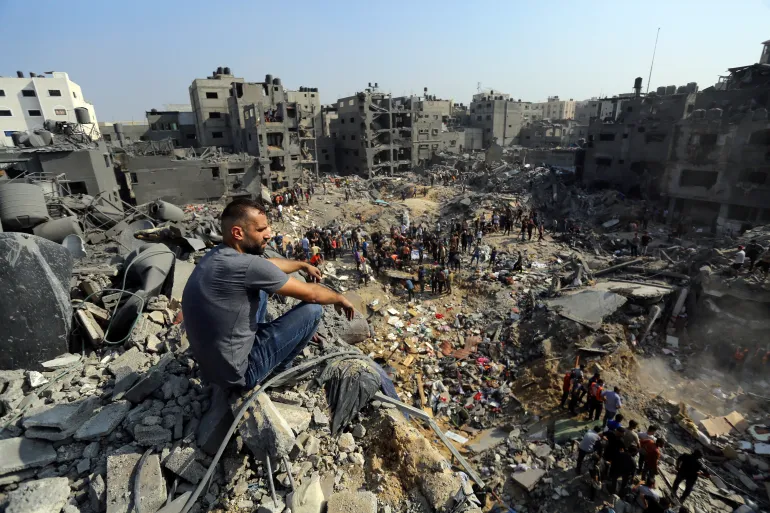The FCC vs. the News in Your Neighborhood
Could the FCC and the bountiful red tape it deploys in the name of protecting vulnerable local news outlets in fact be contributing to local news’ demise? Yes, argues Holman W. Jenkins Jr. in a WSJ op-ed criticizing FCC chief Jessica Rosenworcel for upholding the agency’s outdated anti-consolidation policies despite the contemporary “pleas of broadcasters trying to survive in a digital world the rules never contemplated.”
It’s a provocative take to be weighed carefully given the effect of recent media acquisitions on the quality of content those mergers produce. But Jenkins is right to question the FCC’s unwavering stance on rules, pertaining to a revolutionized field, that are explicitly submitted for regular reviews. That those reviews are often delayed, in some cases for years, strengthens the columnist’s take.
How Gaza Changed the Rules for Newsrooms
“Nothing in recent memory has riven newsrooms the way [the War in Gaza] has,” writes Ayodeji Rotinwa in Columbia Journalism Review. It’s hard to argue with that given the stakes, including a serious threat to newsrooms’ once-sacrosanct dedication to neutrality, which had been wobbly for years. The conflict is only the latest to test the ” anodyne public disposition” that newspapers, apart from their opinion desks, historically took. But Rotinwa argues that unlike the media conflagrations surrounding the killing of George Floyd or Russia’s invasion of Ukraine, “no shared perspectives apply” here.
As a result, papers including the LA Times have suspended from covering the war journalists who’ve been outspoken in their stances on it. Other organizations, like Hearst, have encouraged staffers to police each other’s social media activity for potentially offensive posts or likes.
Maintaining objectivity, or the appearance of it, is not the only anxiety. What control do news organizations have over the public statements of freelancers who don’t receive benefits or steady paychecks? Should cultural critics be held to the same standards as, say, war reporters? And when does it become clear, given overwhelming evidence, that journalists, in the words of Wesley Lowery, “must not conceal the truth through euphemism; rather, we should employ direct language.”
The Deadly Challenges of War Coverage in Gaza
The New Yorker’s Clare Malone analyzes the complications facing broadcast journalists on the ground in Gaza, and how certain restrictions–including, in many cases, the requirement of I.D.F. security escorts–may impede their ability to speak directly and objectively. Malone interviews CNN Chief International Correspondent Clarissa Ward for the piece. Despite being one of very few Western journalists to enter the territory independent of the I.D.F. Ward’s reportage, and the danger it carries, has been met with doubt and occasional mockery.
The story hammers home the immense difficulty in producing trusted news in “a war where even the most basic statistics, such as deaths and injuries, are subject to skepticism.”

